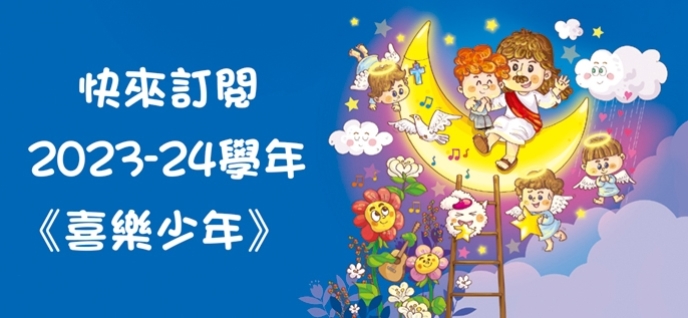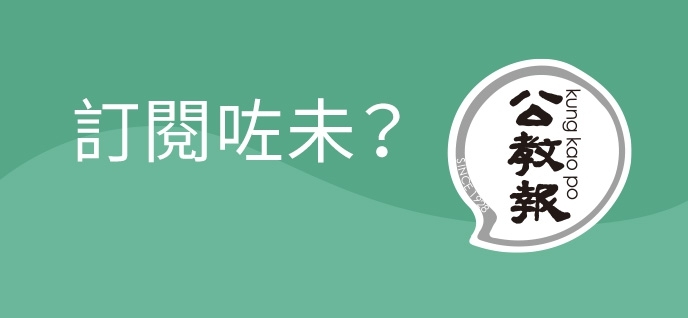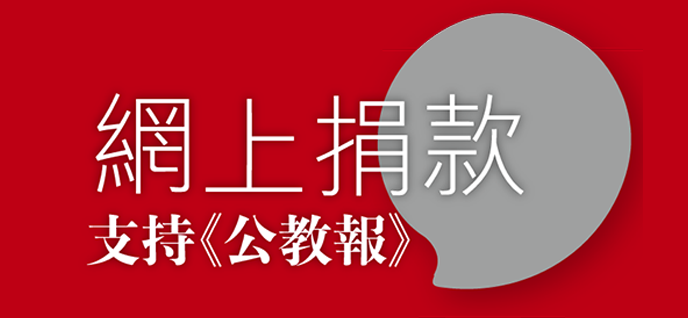昔日文章
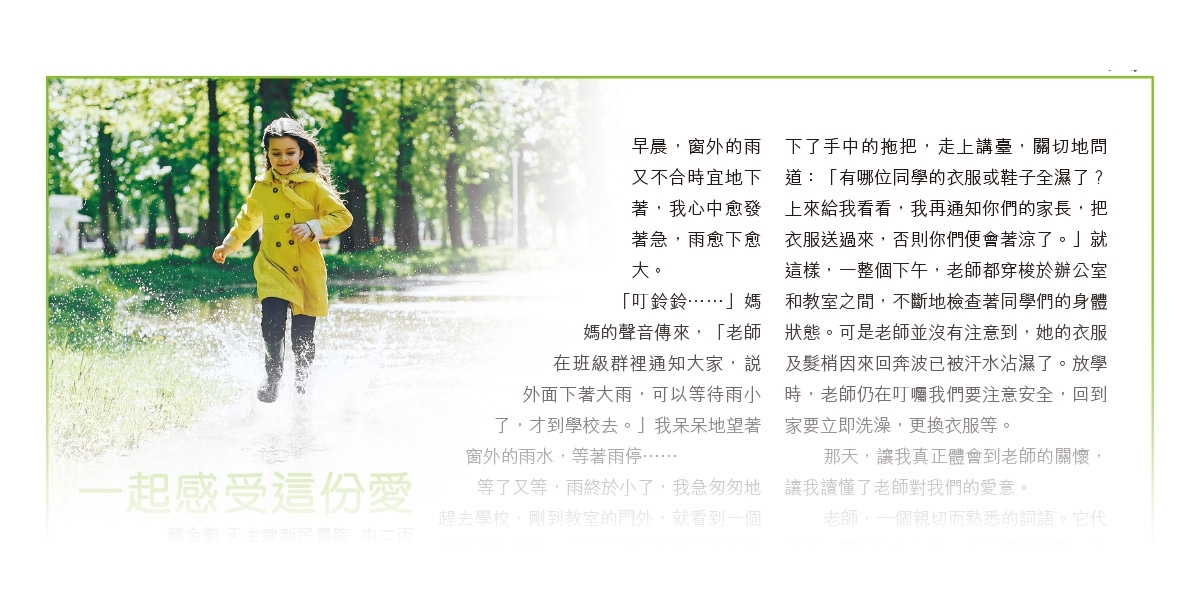

中學文章
2023.04.30
喜樂中學 - 文章
一起感受這份愛
悠悠歲月,歷歷往事,面對朝夕相處的老師,胸中有無限激情在沸騰,心中也有許多話語在跳躍,學習的時光是短暫的,卻又是美好而難忘的。
在那零碎的回憶中,唯有那件事閃著耀眼光芒,那天平凡得如往常一樣,卻又獨特得令我留下深刻的記憶。一個平凡的早晨,窗外的雨又不合時宜地下著,我心中愈發著急,雨愈下愈大。
「叮鈴鈴……」媽媽的聲音傳來,「老師在班級群裡通知大家,說外面下著大雨,可以等待雨小了,才到學校去。」我呆呆地望著窗外的雨水,等著雨停……
等了又等,雨終於小了,我急匆匆地趕去學校,剛到教室的門外,就看到一個個熟悉的身影。只見老師們不顧走廊外的大雨滂沱,寒風凜冽,手裡拿著拖把,把灑進走廊的雨水不斷地推到水槽裡去。他們的頭髮已經被風吹亂了,衣襟被雨水打濕,此時縱然外面是狂風暴雨,看到這一刻,我的心裡卻是暖洋洋的。
陸續到校的同學越來越多,有幾位同學衣衫已經全濕了。老師皺起了眉頭,放下了手中的拖把,走上講臺,關切地問道:「有哪位同學的衣服或鞋子全濕了? 上來給我看看,我再通知你們的家長,把衣服送過來,否則你們便會著涼了。」就這樣,一整個下午,老師都穿梭於辦公室和教室之間,不斷地檢查著同學們的身體狀態。可是老師並沒有注意到,她的衣服及髮梢因來回奔波已被汗水沾濕了。放學時,老師仍在叮囑我們要注意安全,回到家要立即洗澡,更換衣服等。
那天,讓我真正體會到老師的關懷, 讓我讀懂了老師對我們的愛意。
老師,一個親切而熟悉的詞語。它代表著一團無私的火焰,是光輝的旗幟,蘊含著對我們永恆的愛,即使沒有鮮花的舞臺,或是沒有掌聲的獨白,但是,當他們緊握粉筆的時候,總能讓每一朵花兒盛開。
老師是如此耀眼,成為了我們平淡歲月裡的星辰,同學們,讓我們一起感受這份愛吧!
蔡金韵 天主教新民書院 中二丙
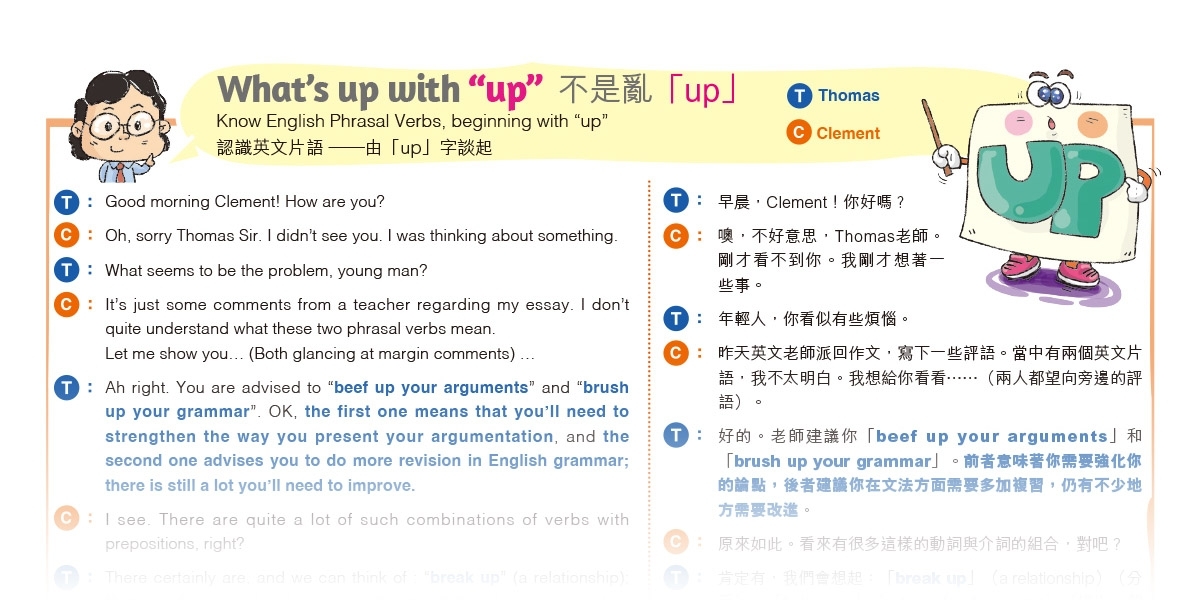
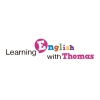
Learning English with Thomas
2023.02.05
What’s up with “up” 不是亂「up」
Know English Phrasal Verbs, beginning with “up”
認識英文片語 ——由「up」字談起
T : ThomasC C : Clement
T: Good morning Clement! How are you?
C: Oh, sorry Thomas Sir. I didn’t see you. I was thinking about something.
T: What seems to be the problem, young man?
C: It’s just some comments from a teacher regarding my essay. I don’t quite understand what these two phrasal verbs mean.
Let me show you… (Both glancing at margin comments) …
T: Ah right. You are advised to “beef up your arguments” and “brush up your grammar”.
OK, the first one means that you’ll need to strengthen the way you present your argumentation,
and the second one advises you to do more revision in English grammar; there is still a lot you’ll need to improve.
C: I see. There are quite a lot of such combinations of verbs with prepositions, right?
T: There certainly are, and we can think of : “break up” (a relationship); “bring up” (a topic for discussion); “look up” (the dictionary); and so on.
C: Thanks so much, Thomas Sir. I’ve got to go now. Tell me more next time.
T: 早晨,Clement!你好嗎?
C: 噢,不好意思,Thomas老師。剛才看不到你。我剛才想著一些事。
T: 年輕人,你看似有些煩惱。
C: 昨天英文老師派回作文,寫下一些評語。當中有兩個英文片語,我不太明白。我想給你看看……(兩人都望向旁邊的評語)。
T: 好的。老師建議你「beef up your arguments」和「brush up your grammar」。前者意味著你需要強化你的論點,
後者建議你在文法方面需要多加複習,仍有不少地方需要改進。
C: 原來如此。看來有很多這樣的動詞與介詞的組合,對吧?
T: 肯定有,我們會想起:「break up」(a relationship)(分手);「bring up」(a topic for discussion)(提出一個課題作討論);
「look up」(the dictionary)(查字典) 等等。
C: 十分感謝你,Thomas老師。我現在要走了。下次再多加指點。
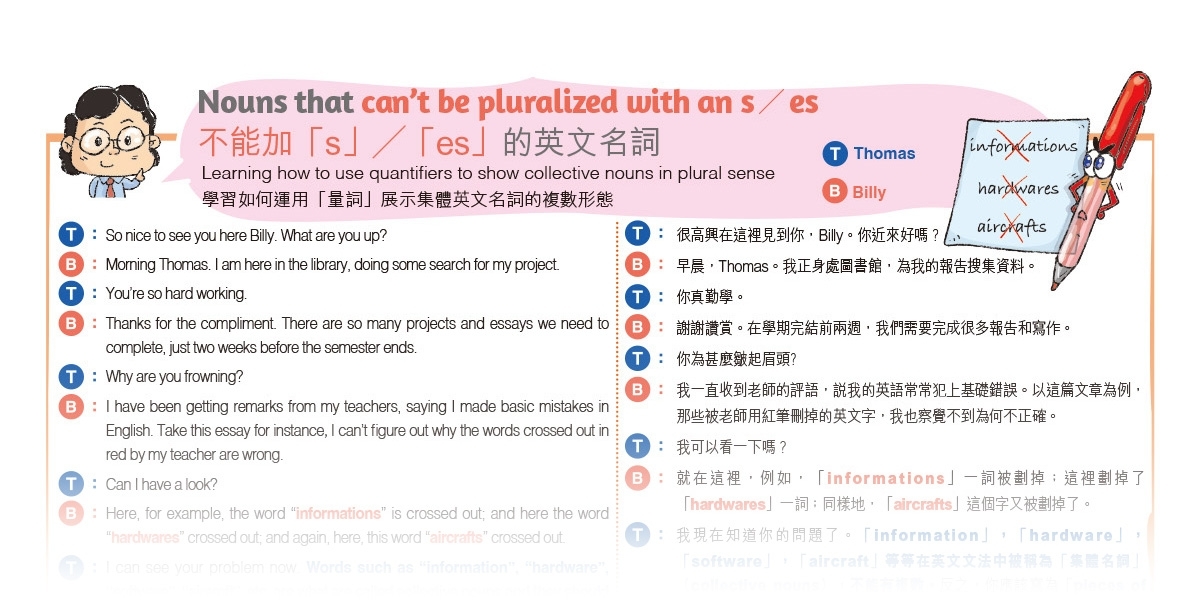

Learning English with Thomas
2023.01.15
Nouns that can’t be pluralized with an s ╱ es
an s ╱ es 不能加「s」╱「es」的英文名詞
Learning how to use quantifiers to show collective nouns in plural sense
學習如何運用「量詞」展示集體英文名詞的複數形態
T : Thomas B : Billy
T : So nice to see you here Billy. What are you up?
B : Morning Thomas. I am here in the library, doing some search fo rmy project.
T : You’re so hard working.
B : Thanks for the compliment. There are so many projects and essays we need to complete, just two weeks before the semester ends.
T : Why are you frowning?
B : I have been getting remarks from my teachers, saying I made basic mistakes in English. Take this essay for instance, I can’t figure out why the words crossed out in red by my teacher are wrong.
T : Can I have a look?
B : Here, for example, the word “informations” is crossed out; and here the word “hardwares” crossed out; and again, here, this word “aircrafts” crossed out.
T : I can see your problem now. Words such as “information”, “hardware”, “software”, “aircraft”, etc. are what are called collective nouns and they should not be pluralized. Instead, you should write “pieces of information”. For “hardware” you’d say “hardware systems”; and for “aircraft” you’d say “units of aircraft”. Such nouns in English usage need quantifiers to show a plural sense.
B : I see. That’s something I must bear in mind from now on. Thanks so much for the explanation.
T : 很高興在這裡見到你,Billy。你近來好嗎?
B : 早晨,Thomas。我正身處圖書館,為我的報告搜集資料。
T : 你真勤學。
B : 謝謝讚賞。在學期完結前兩週,我們需要完成很多報告和寫作。
T : 你為甚麼皺起眉頭﹖
B : 我一直收到老師的評語,說我的英語常常犯上基礎錯誤。以這篇文章為例, 那些被老師用紅筆刪掉的英文字,我也察覺不到為何不正確。
T : 我可以看一下嗎?
B : 就在這裡, 例如, 「i n f o r m a t i o n s 」一詞被劃掉; 這裡劃掉了 「hardwares」一詞;同樣地,「aircrafts」這個字又被劃掉了。
T : 我現在知道你的問題了。「information」,「hardware」, 「software」,「aircraft」等等在英文文法中被稱為「集體名詞」(collective nouns),不能有複數。反之,你應該寫為「pieces of information」。至於「hardware」,您可以用「hardware systems」(硬件系統);而「aircraft」可以說成「units of aircraft」(飛機單位)。這些名詞,在英文運用上,要加上「量詞」(quantifiers)才能量化。
B : 原來如此。我今後必須牢記這些的知識。非常感謝您的講解。
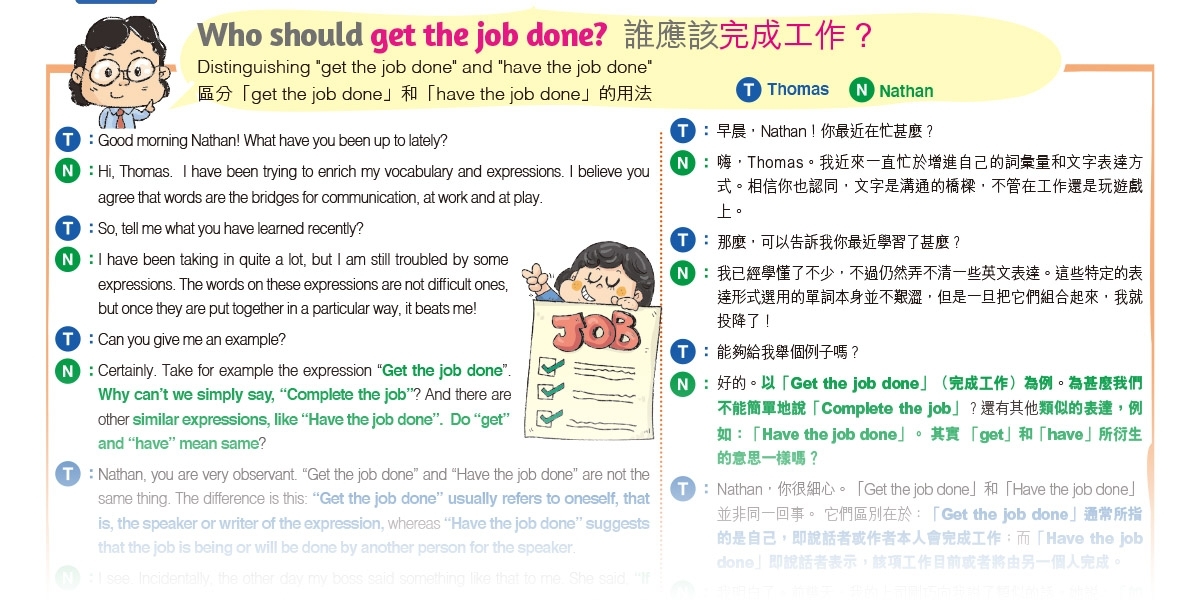

Learning English with Thomas
2023.01.06
Who should get the job done? 誰應該完成工作?
Distinguishing "get the job done" and "have the job done" 區分「get the job done」和「have the job done」的用法
T : Thomas, N : Nathan
T: Good morning Nathan! What have you been up to lately?
N: Hi, Thomas. I have been trying to enrich my vocabulary and expressions. I believe you agree that words are the bridges for communication, at work and at play.
T: So, tell me what you have learned recently?
N: I have been taking in quite a lot, but I am still troubled by some expressions. The words on these expressions are not difficult ones, but once they are put together in a particular way, it beats me!
T: Can you give me an example?
N: Certainly. Take for example the expression “Get the job done”. Why can’t we simply say, “Complete the job”? And there are other similar expressions, like “Have the job done”. Do “get” and “have” mean same?
T: Nathan, you are very observant. “Get the job done” and “Have the job done” are not the same thing. The difference is this: “Get the job done” usually refers to oneself, that is, the speaker or writer of the expression, whereas “Have the job done” suggests that the job is being or will be done by another person for the speaker.
N: I see. Incidentally, the other day my boss said something like that to me. She said, “If you’re too busy to get the documents copied right away, have it done by Sandy.”
T: You’ve got it all, Nathan! Great!
T: 早晨,Nathan!你最近在忙甚麼?
N: 嗨,Thomas。我近來一直忙於增進自己的詞彙量和文字表達方式。相信你也認同,文字是溝通的橋樑,不管在工作還是玩遊戲上。
T: 那麼,可以告訴我你最近學習了甚麼?
N: 我已經學懂了不少,不過仍然弄不清一些英文表達。這些特定的表達形式選用的單詞本身並不艱澀,但是一旦把它們組合起來,我就投降了!
能夠給我舉個例子嗎?
好的。以「Get the job done」(完成工作)為例。為甚麼我們不能簡單地說「Complete the job」?還有其他類似的表達,例如:「Have the job done」。 其實 「get」和「have」所衍生的意思一樣嗎?
T: Nathan,你很細心。「Get the job done」和「Have the job done」並非同一回事。 它們區別在於:「Get the job done」通常所指的是自己,即說話者或作者本人會完成工作;而「Have the job done」即說話者表示,該項工作目前或者將由另一個人完成。
N: 我明白了。前幾天,我的上司剛巧向我說了類似的話。她說:「如果你忙得不能立即複印這份文件,那麼找Sandy代勞。」
T: Nathan你真的學懂了!非常好!




